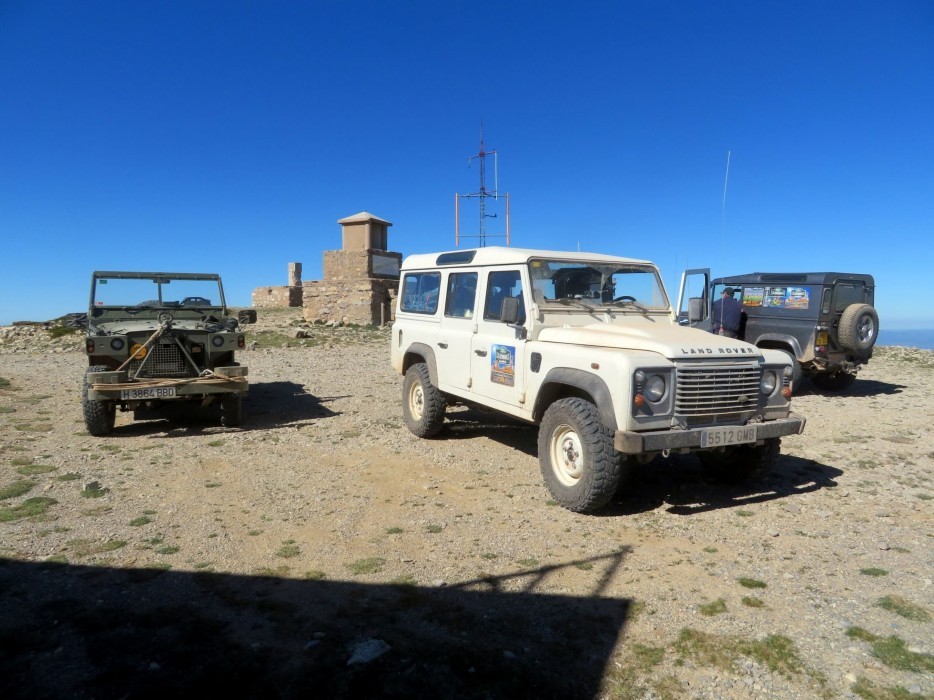
What´ s the difference between off-road and overland? What am I?
I thought this would be an interesting subject for this second post. I don’t think I mentioned it in my first post, but when I approached this overland world for the first time after a period of initially making inquiries, watching videos and reading blogs, these two questions were the ones that raised the most doubts. The first one I talked about in the previous post – What is Overland? – and the second, which I am going to cover in this post, is about the difference between overland and off-road.
As I’ve already told you, I believe I got it pretty much right in the previous post – at least I hope I did – in explaining what overland means. In this second part, I’ll attempt to explain what the difference between overland and off-road is.
You’ll be able to find broad explanations as to what both activities involve online, on the different website devoted to such matters, with lists that are more or less wide-ranging as to the differences between them, or the features of one or the other. What’s more, on many websites no distinction is drawn or there is no clear focus on one activity or the other.
In my opinion, there is a key difference that draws a distinction between the purpose - the goal pursued - in the case of each activity.
In the case of off-road or all-terrain, the main purpose is the journey, the activity – that of putting the car and oneself in a series of situations, facing the challenge provided by a series of tracks of certain technical difficulty. Thus, depending on the experience gained by drivers or, to put it better, depending on the experience they gain over time, they will search for tracks and landscape of greater difficulty. Therefore, in the case of off-road, the purpose lies in dealing with the track, the difficulties that may arise and how to overcome them.
For its part, in the case of an overland journey the purpose is the journey or travel itself, whereby depending therefore on the travel that has been planned, the tracks or routes may be of greater or lesser difficulty, although the purpose is the journey, not the routes or how difficult they are. Indeed, depending on travel needs and possible alternatives, an overlander won’t go for the riskiest, most technically difficult option, but rather, will choose the alternative that enables them to undertake the journey planned as reliably as possible.
From my point of view, this difference is the main one between an off roader and an overlander. The purpose of their journey is for the overlander the journey itself, whereas for the off roader it means overcoming difficulties encountered with the terrain.
All the other decisions that will need to be taken revolve around this main difference, both in terms of travel, preparation, planning and design, and mainly in terms of getting ready and modifying their vehicles accordingly.
The off roader will focus first and foremost on improving the all-terrain capacities of their vehicle. In their case, the technical aspect regarding the car will be paramount – the wheels, suspension, protection, height, etc. that will ensure the greatest possible all-terrain capacity, as opposed to comfort, convenience or camper options.
In any event, in neither case are any aspects regarding the vehicle overlooked, whether this be the off-road technician or the camper.
And as I’ve said before, the main difference between one or another is the purpose. For one, the purpose of the journey is the journey itself, whereby the camper will take all decisions in accordance with this purpose, prioritising preparation of their vehicle, whereas the other – the off roader – will prioritise technical modifications to the car that will enable them to ensure greater all-terrain capacities.
By way of an example, in a world with scarce resources and in view of the possibility of investing €1,000 either in a new tent or rear a locking differential, the overlander will undoubtedly choose the tent, while the off roader would go for the rear locking – although both might perfectly well choose the tent and the locking or the locking and the tent if they had €2,000 to spend. Within the reality of a world with scarce resources, however, each one will set aside theirs to either boost the camper aspect or the all-terrain aspect.
In your case, if you’ll allow me to ask: what are you? Are you clearly one or the other? Sometimes one, sometimes the other? Can you be both one and the other at the same time? For my part, I consider myself to be an overlander, but with marked off roader tendencies….